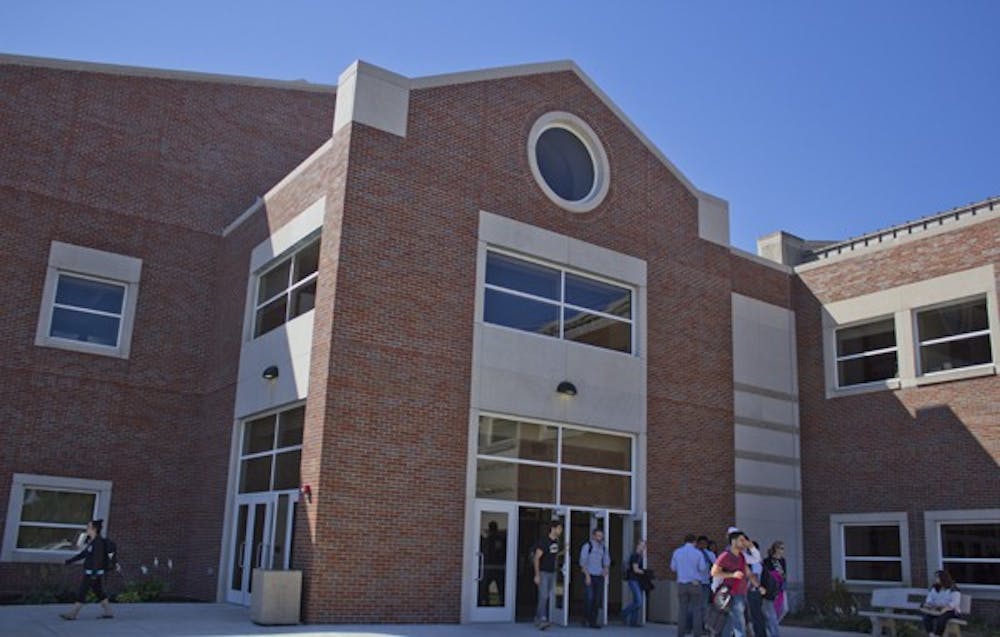Monthly check-up: CMED students buckle down after inaugural month
Housam Tahboub has already begun witnessing the rigors of medical school firsthand. Now, one month into the first semester of CMED’s inaugural class, he’s begun to work harder than ever before.
After the initial exam last week, Tahboub, who completed his undergraduate at the University of Michigan-Flint, was optimistic despite the culture shock of the program’s vast material. He said many of his classmates were also surprised during their transition from foundational sciences into anatomy.“Everybody had a scare,” Tahboub said. “Obviously it’s tough, but you don’t realize how much work it actually is. This is stuff we’ve never seen before.”
He was wary of being the first group of students accepted into the medical school, unable to rely on advice from a previous class.
“As the first class, we don’t get very much guidance as to what to expect,” Tahboub said. “There are no students above you. Some questions (on the exam) did seem difficult, but I think we had a good class average.”
Ali Hachem, 22, of Dearborn, said students are expected to study for three to four hours per day – at minimum. Despite the demanding workload, he felt right at home at CMED.
“I’ve never studied this much in my life,” Hachem said. “It’s not difficult, just an overwhelming amount of material. You got to invest. Right now, we’re trying to get into the groove.”
The co-director of CMED’s foundational science course, William Fleischmann, has witnessed students beginning the difficult transition into medical school. Although he has seen most students succeeding early on, Fleischmann warned that it would not get easier.
“Undergrad is like a garden hose,” he said. “But at medical school, the information comes out like a firehose. It’s the nature of medical school that it’s tougher than undergrad. There are a lot of expectations.”
Fleischmann said students are expected to have some background knowledge in biology and other sciences learned during their undergraduate studies. He said the initial foundational science course is meant to bring students to an even level of understanding.
“We carry them to a certain level and then push even further,” Fleischmann said. “Each student is unique. Some have good experience in biochemistry, while others may know genetics or physiology. They will be well prepared. It is our expectation that all will graduate.”
Hoping to grow enrollment in the second class at CMED to 104 students, Fleischmann said that the college has received more applications than it had at this time last year.
Jamie Alan, assistant professor of pharmacology, explained that in class, students work through 18 to 20-page case studies while trying to determine a diagnosis. She said they work through each case in two days, in small groups of eight, for a total of four hours.
“The smaller groups are more self-directed,” Alan said. “They do develop diagnosis, but the goal is to understand basic science and how it leads one to understand chemical events.”
As instructors and students readily await initial test scores, Fleischmann said he was gleeful that CMED has now begun to take shape.
“It’s been a lot of fun having students here finally,” he said. “We’re eagerly awaiting the results.”




